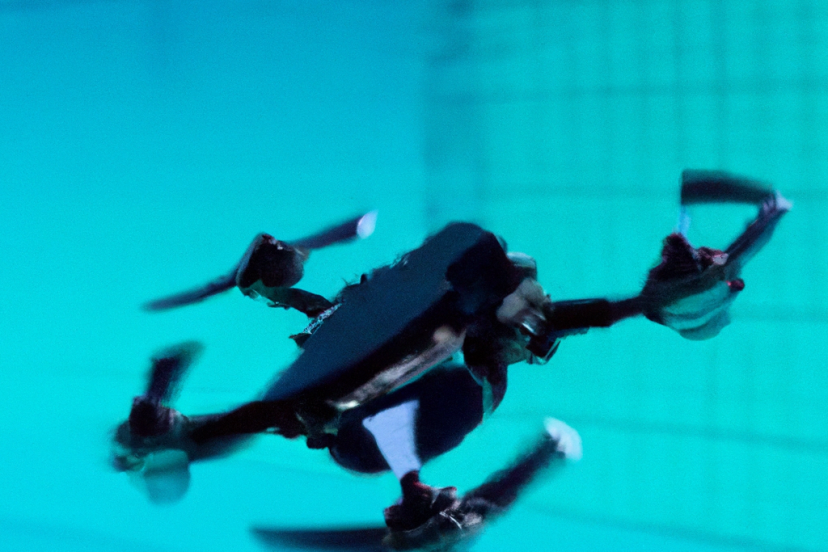Underwater Drones How To Explore The Depths !
If you are like me, I have always been captivated by the mysteries that lie beneath the waves. That’s where underwater drones can really open your eyes !
With the advent of these new machines, a new era of discovery has unfolded which means you don’t need to go snorkeling if you don’t want to !
In this article, I aim to shed light on the fascinating world of underwater drones, something I didn’t realise existed until last year, their applications, and the factors to consider when choosing the perfect drone for your needs.
Types of Underwater Drones:
They come in various types, each designed for specific purposes. Remotely Operated Vehicles (ROVs) are tethered drones controlled by an operator on the surface.
Autonomous Underwater Vehicles (AUVs), on the other hand, operate independently, pre-programmed for underwater missions.
Hybrid drones combine the best of both worlds, offering versatility and advanced functionalities.
Key Features and Considerations:
When selecting an underwater drone, several key features should be taken into account. Waterproof and durable construction is paramount to ensure the drone’s longevity.
Maneuverability and control options determine the ease of navigation and exploration. Camera quality and imaging capabilities play a vital role in capturing breathtaking underwater footage.
Battery life, recharge ability, depth, and pressure rating, as well as sonar and mapping capabilities, are also crucial considerations.
Applications of Underwater Drones:
The applications of these drones are vast and diverse. Marine exploration and research benefit from their ability to reach depths beyond human capability.
Underwater photography and videography enthusiasts can capture stunning visuals of marine life and submerged landscapes.
Inspection and maintenance of underwater structures, search and rescue operations, and environmental monitoring are among the numerous practical uses of these technological marvels.
How to Choose the Right Underwater Drone:
To make an informed decision, several factors need to be taken into account when choosing the right underwater drone. Firstly, determining your purpose and budget will help narrow down the options.
Then, assessing the drone’s specifications and features is crucial. Consider factors such as the maximum depth it can reach, the quality of the camera, and its maneuverability.
Reading customer reviews and seeking expert opinions can provide valuable insights into the performance and reliability of different models.
Ease of use and compatibility with your existing equipment should also be considered. Look for intuitive control systems and software interfaces that make piloting the drone a seamless experience.
Additionally, evaluating the after-sales support and warranty offered by the manufacturer ensures you have assistance in case of any issues or concerns.
Best Practices for Operating Underwater Drones:
Operating ones of these drones require responsible and safe practices. Familiarize yourself with local regulations and restrictions regarding drone usage in water bodies.
Learn and practice proper piloting techniques to avoid accidents and ensure the longevity of your drone. Regular maintenance and cleaning are essential for keeping the drone in optimal condition.
Safely handle and store the batteries, following manufacturer guidelines. Lastly, be mindful of the environmental impact and operate the drone in a way that minimizes disturbance to marine life and ecosystems.
The Future of Underwater Drones:
The future of underwater exploration is filled with exciting possibilities. Advancements in technology are expected to enhance their capabilities even further.
Integration with artificial intelligence and machine learning algorithms will enable drones to analyze data in real-time, aiding in scientific research and exploration efforts.
With ongoing developments, the accessibility and affordability of underwater drones are likely to increase, allowing more individuals to embark on their underwater adventures.
Collaborative initiatives between researchers, governments, and technology companies will further push the boundaries of underwater exploration.
Conclusion:
Underwater drones have revolutionized the way we explore and understand the underwater world.
With their versatility, advanced features, and applications across various industries, they have become indispensable tools for enthusiasts and professionals alike.
As an drone enthusiast, I encourage you to delve into the depths, embrace the awe-inspiring beauty below the surface, and contribute to the conservation and understanding of our marine ecosystems.
So, gear up, dive in, and let the underwater drones be your gateway to a world waiting to be discovered.
FAQs About Underwater Drones
Q1: Are they suitable for beginners?
A: Yes, there are variations available that cater to beginners with user-friendly interfaces and simplified controls.
Q2: Can underwater drones operate in all types of water bodies?
A: While they are designed to withstand various conditions, it’s important to check their specifications to ensure they are suitable for the intended environment.
Q3: How long do the drone batteries last?
A: Battery life varies depending on the model and usage. Typically, underwater drone batteries can last anywhere from 1 to 4 hours before needing a recharge.
Q4: Are underwater drones expensive?
A: The cost of underwater drones varies depending on the features and capabilities. There are options available for different budgets, ranging from affordable consumer models to high-end professional-grade drones.
Q5: Can I use underwater drones for fishing?
A: Some underwater drones offer fishing-specific features such as bait deployment and fish-finding capabilities, making them suitable for recreational fishing purposes.
Q6: Can underwater drones withstand deep-sea exploration?
A: Certain underwater drones are specifically designed and built to withstand the extreme pressures and depths of deep-sea exploration. These drones are equipped with advanced pressure-resistant casings and specialized components.
Q7: How do I maintain and clean an underwater drone?
A: Regular maintenance and cleaning are essential to keep your underwater drone in optimal condition.
Follow the manufacturer’s guidelines for maintenance tasks such as propeller inspection, cleaning the exterior, and ensuring proper sealing to prevent water damage.
Q8: Can underwater drones capture high-quality images and videos?
A: Yes, underwater drones are equipped with cameras that can capture high-resolution images and videos.
The quality may vary depending on the model, so it’s important to consider the camera specifications before making a purchase.
Q9: Are underwater drones restricted by any regulations?
A: Yes, the use of underwater drones may be subject to specific regulations and restrictions depending on the country or region.
It’s important to familiarize yourself with local laws governing drone usage in water bodies and comply with them accordingly.
Q10: Can underwater drones be used for scientific research?
A: Absolutely! Underwater drones play a crucial role in scientific research, allowing researchers to explore and study marine environments, collect data, and conduct various experiments underwater.
Remember to always refer to the specific guidelines and instructions provided by the manufacturer of your underwater drone for optimal performance and safety.
Embarking on underwater adventures with these remarkable devices opens up a world of possibilities for exploration, research, and conservation.
So, dive in and let your underwater drone be your trusted companion beneath the waves.
Q11: Can I live-stream footage from an underwater drone?
A: Yes, many underwater drones offer live-streaming capabilities, allowing you to view real-time footage on a connected device such as a smartphone or tablet.
Q12: Are there any risks involved in operating an underwater drone?
A: Like any technology, there are potential risks associated with operating underwater drones.
These include the risk of entanglement, loss of signal, or damage to the drone in challenging underwater conditions. I
It’s important to follow safety guidelines, practice responsible operation, and be aware of your surroundings.
Q13: Can underwater drones be used for underwater archaeology?
A: Absolutely! Underwater drones have revolutionized the field of underwater archaeology, enabling researchers to explore and document submerged archaeological sites with precision and accuracy.
Q14: Are underwater drones equipped with obstacle avoidance technology?
A: Some advanced underwater drone models come with obstacle avoidance technology, utilizing sensors or imaging systems to detect and avoid obstacles in their path.
However, not all drones have this feature, so it’s important to check the specifications of the drone you intend to purchase.
Q15: Can I attach additional accessories to my underwater drone?
A: Depending on the specific model, some underwater drones offer the option to attach additional accessories such as extra lights, robotic arms, or specialized sensors.
These accessories can enhance the drone’s capabilities and expand its range of applications.
Exploring the underwater realm has never been more accessible and captivating than with underwater drones. These remarkable devices provide a unique perspective and open doors to new discoveries beneath the waves.
Whether you’re an adventure enthusiast, a marine researcher, or simply someone who yearns to witness the beauty of the underwater world, an underwater drone can be your faithful companion.
Embrace the possibilities, unleash your curiosity, and embark on an unforgettable journey of underwater exploration with these technological marvels.
If your interested in drones in general why not look at our previous article about land drones and the fun you can have with them !
Catch you soon !




